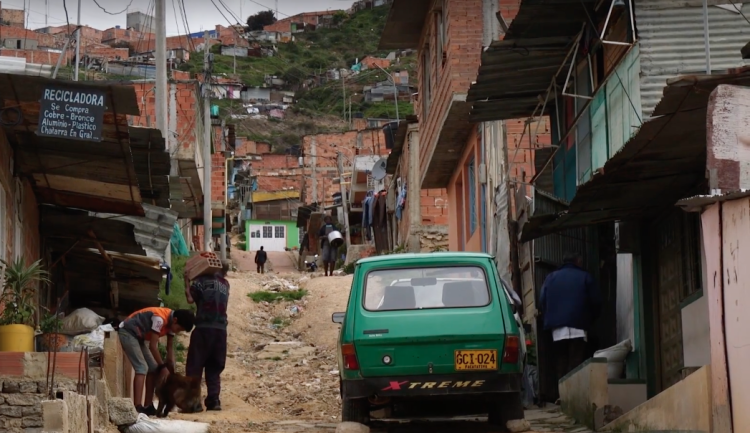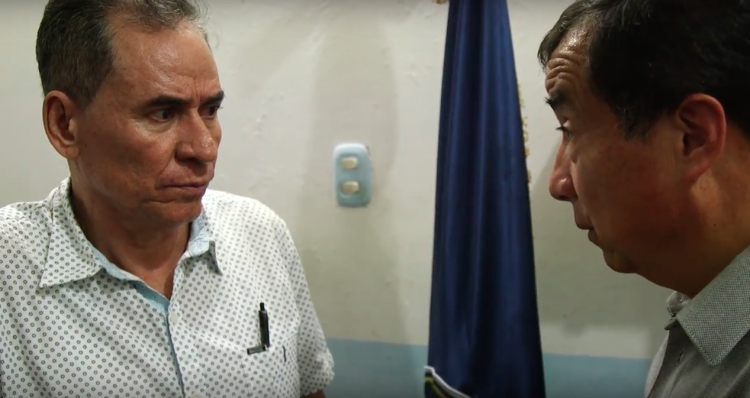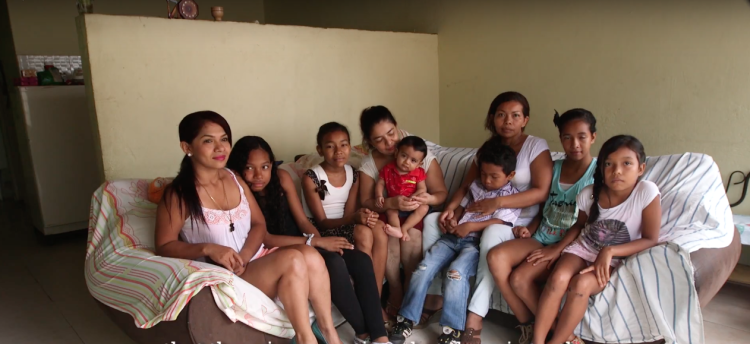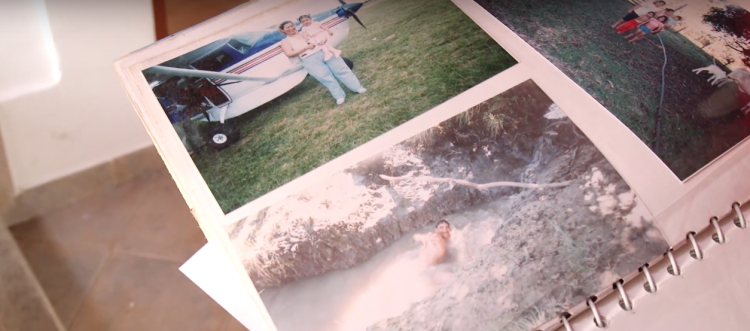![[object Object]](https://cdn.berthafoundation.org/wp-content/uploads/2018/11/shorthand/3167/0XAm4QPDkU/assets/CNKk9kfp9T/screen-shot-2018-03-29-at-17-51-52-1259x638.png)
VIDEO ADVOCACY CASE STUDY
SOLIDARITY IN COLOMBIA
Reframing the Attacks on Human Rights Defenders
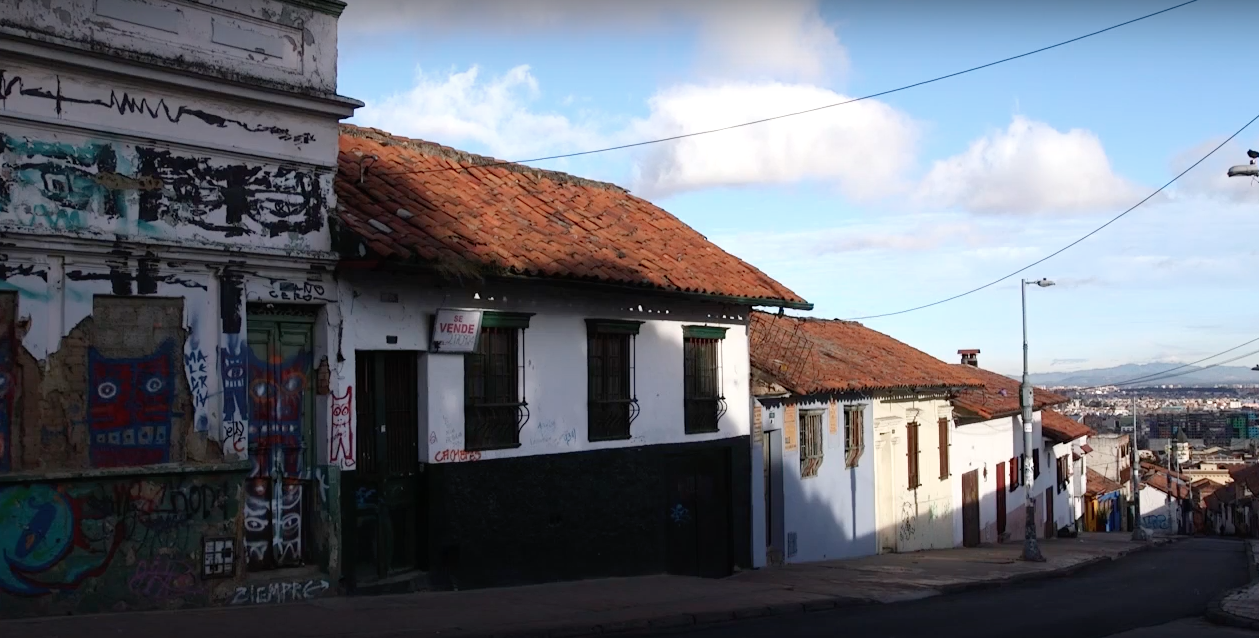
Summary
Organizations Producing the Videos:
Corporación Colectivo de Abogados José Alvear Restrepo (CAJAR)
New Media Advocacy Project (NMAP)
Corporación Jurídica Yira Castro (CJYC)
Comisión Intereclesial Justicia y Paz
Country of Production:
Colombia
Issue Addressed:
Defamation and threats to human rights defenders
Intended Use of the Videos:
To shift the narrative around human rights defenders facing defamation campaigns
Target Audiences:
Young people, clients in the field and state officials through meetings and social media platforms
Videos:
Words that Kill (a series of four 7 minute videos)
English: www.bit.ly/defendersco
Spanish: www.bit.ly/defensorxs
The Issue
In 2017, the Office of the United Nations High Commissioner for Human Rights reported that at least 105 human rights defenders in Colombia were killed. The organization Somos Defensores noted that the killings in the first half of 2017 represented an increase of 31% compared to the same period in 2016. Both press and government officials routinely conducted smear campaigns against those who worked to bring justice for the victims. They would link human rights organizations to armed groups and accused them of embezzling victims’ compensation to cast doubt on the credibility of human rights work in Colombia and beyond.
One case was particularly challenging for the lawyers collective Colectivo de Abogados José Alvear Restrepo (CAJAR) and the broader human rights community in Colombia. In July 1997, paramilitaries carried out a massacre in the town of Mapiripan, brutally killing dozens of people and displacing hundreds of others. CAJAR represented many of the families seeking justice. The Inter-American Court on Human Rights ordered the state of Colombia to pay millions of U.S. Dollars in reparations to the families of those affected by the massacre. However, in 2011, one of the plaintiffs retracted her original statement, saying that her son had reappeared and that her husband had actually died prior to the massacre. The state of Colombia then petitioned the Inter-American Court on Human Rights to review their decision and CAJAR faced accusations of fabricating plaintiffs for the sake of compensation. President Juan Manuel Santos labeled CAJAR’s lawyers as “greedy” and “corrupt,” unleashing a media campaign that exposed human rights defenders to a new wave of attacks, harassment and intimidation. In addition to increasing the overall stigma around human rights work in Colombia, this created distrust between CAJAR and clients in other cases, impeding others’ efforts to seek justice.
The Organizations
Colectivo de Abogados José Alvear Restrepo (CAJAR) promotes and protects human rights in Colombia, especially the rights of activists to carry out their work in safety. CAJAR plays a key role in ensuring that victims are represented in Colombia’s ongoing peace process and in subsequent post-conflict transitional justice mechanisms.
The Comisión Intereclesial de Justicia y Paz supports community processes in Afro-descendant, mixed and indigenous communities or organizations who use nonviolent methods in armed conflict areas.
The Corporación Jurídica Yira Castro (CJYC) conducts trainings, provides legal assistance and advocates for justice at the national and international levels around many issues, especially land and internal displacement.
The New Media Advocacy Project (NMAP) combines legal expertise with cutting edge communication tools to strengthen human rights and social justice work. It helps advocates tell their stories in compelling and powerful ways to tip the balance in the toughest cases and campaigns. In 2016, NMAP received a grant to support the work of lawyers in the Bertha Justice Network of which CAJAR is a member. CAJAR then brought onboard the other three Colombian organizations in a joint-effort to change the narrative around human rights defenders.
Why Video?
Human rights defenders in Colombia have historically faced threats, surveillance and smear campaigns by the press and government officials. However, the false testimony around the Mapiripan Massacre escalated distrust around human rights work, especially for CAJAR. In response, CAJAR, the Comisión Intereclesial de Justicia y Paz and the Corporación Jurídica Yira Castro joined forces to create a campaign that explains why human rights defenders carry out this work and face such backlash. Video was identified as the most effective means to persuade the target audiences to connect to the defenders’ stories: visually showing what the work in the field entails and explaining why and how a defamation campaign plays out.
Advocacy Objectives and Target Audiences
The primary advocacy objective was to shift the narrative around human rights defenders in Colombia by showing another side of the story: that defenders face politically motivated bogus charges and smear campaigns designed to delegitimize their work of exposing the truth and bringing justice to victims of human rights violations. The secondary advocacy objective was to demonstrate that Colombian human rights organizations are not a loose group of individual lawyers seeking to take on cases for the sake of gaining economic reparations; rather, these are public interest driven civil society organizations that are recognized internationally for their work and they stand together as a unified social movement. Finally, the videos sought to demonstrate how an attack on a human rights organization not only affects the lawyers and/or institutions in question but also the clients represented, adding an additional layer of injustice and impunity in Colombia.
In terms of target audiences, CAJAR and NMAP identified the general public as a target audience, namely younger people who are coming of age at a time when discussions around justice and accountability are at the forefront of Colombia’s national debate around the peace process. NMAP and CAJAR identified social media as a key vehicle to influence public opinion at large, given that at least half (25-30 million) of Colombian residents are monthly users of Facebook and 64% of these users are under the age of 35. As one of the goals was to demonstrate the impact that smear campaigns have upon those seeking and obtaining justice, CAJAR and NMAP deemed decision-makers in the judicial system (judges, lawyers, among others) and clients in the field as other target audiences.
Given Colombians’ large presence on social media, the project also sought to build CAJAR’s capacity to use media strategically in its legal and advocacy work. Twenty-eight out of 40 staff members participated in NMAP’s training for CAJAR on social media techniques. Additionally, NMAP conducted a multimedia training for 22 of CAJAR’s frontline partners (called “project facilitators”) on basic production skills and how to incorporate media into their legal advocacy work.
The Videos
Produced by CAJAR and NMAP, the Words that Kill series is comprised of a short introduction video followed by four 7 minute videos on specific cases that can be stand alone films or be viewed together sequentially. The four videos cover the following cases:
1) CAJAR’s work on the Mapiripan Massacre and how authorities and the media used one retracted testimony to cast doubt on all the other plaintiffs and their lawyers;
2) CAJAR’s work on the case of David Ravelo, who was falsely accused of murder and imprisoned after having denounced several massacres carried out by paramilitaries;
3) Yira Castro’s work on the restitution of land and accusations of the organization reaping economic gains from this work;
4) Justicia y Paz’s work with communities who oppose companies that negatively affect their livelihoods and the need to counter accusations by government and company representatives that Justicia y Paz is linked to armed guerrilla groups.
NMAP filmed and edited these videos over the course of five months. They found government officials to be more responsive to requests to speak on camera for interviews if they came from a foreign organization such as NMAP than a Colombian organization such as CAJAR, further demonstrating how smear campaigns affect Colombian organizations’ ability to access decision-makers. In addition to the series of four videos, NMAP created a few shorter 1 minute spots for Twitter as teasers to persuade viewers to watch the full 7 minute videos on the cases.
Contrary to many advocacy videos, Words that Kill sought to shift an overall narrative around human rights defenders and therefore NMAP and CAJAR made a deliberate decision to refrain from asking the viewer to take a position on a particular case or issue. Instead, the videos only ask the viewer to distribute the content further via social media.
Impact Distribution Strategy
CAJAR initially launched Words that Kill on September 9, 2017 - Colombia’s National Human Rights Day - to draw attention to public solidarity for Colombian human rights defenders. Given how mainstream media has participated in smear campaigns against CAJAR and its partners, they did not rely on these traditional outlets and instead focused on Facebook and Twitter to reach the general public.
NMAP and CAJAR also used free messaging platforms such as WhatsApp as distribution platforms. As a mobile instant message application, WhatsApp allows users to send an unlimited number of text messages, videos and images to one person or a group of people at no cost from any smartphone with internet connection. It is widely used as a form of communication in many professional and personal circles in Latin America, and serves as the primary channel CAJAR uses to communicate with its partners, especially with their clients outside of the capital of Bogotá. This technology was instrumental in allowing CAJAR staff to instantly share the Words that Kill videos in meetings and other gatherings. Unfortunately this platform does not allow for tracking of number of viewers or shares so it is not possible to determine the how many people were reached with this strategy.
For social media, NMAP created a suite of materials including sample messaging, short teasers and promotional images, and established the hashtag #YoCreoEnSuTrabajo (#ibelieveinyourwork) as the tagline for the campaign. For April 9 - Colombia’s National Day of Solidarity with Victims - NMAP and CAJAR tested paid boost posts to reach target audiences in regions related to the content of the videos, such as Mapiripan.
Impact and Outcomes
As the primary advocacy objective was to shift the narrative around human rights defenders in Colombia and the video did not make a specific ask for the viewer to take action around a particular case or issue, it is challenging to track concrete changes in policies, practices or behaviors that can be attributed to the video’s distribution. While there was an ask for the viewer to distribute the video further via social media with certain hashtags, unfortunately the number of shares was not captured because the data is only stored on social media platforms for six months. Nevertheless, the videos’s traction documented on social media is noteworthy. For example, the boost paid posts released on Facebook on Colombia’s National Day of Solidarity with Victims reached nearly 42,000 people and 13,000 of these social media users clicked to watch the video.
CAJAR also used Words that Kill to call attention to wins in its work in defense of human rights defenders. For instance, CAJAR won a libel suit against a former politician who was forced to retract accusations that CAJAR had fabricated false witnesses in the Mapiripan case. In response to the decision, NMAP quickly re-edited the video to include the retracted statements and news of the ruling. CAJAR then published and promoted the repurposed video across their social media platforms to inform people why this retraction mattered. This is a good example of how multimedia resources can be used to respond independently and effectively to rapidly changing political events.
Similarly, when human rights defender David Ravelo was freed from prison in 2017, CAJAR re-released the video that told the story of how he spent seven years imprisoned after being falsely accused of murder due to his human rights work. As of March 2018, it has been viewed 18,000 times and the video will continue to be circulated as a way to share his story and build solidarity for the work that CAJAR put into ensuring his freedom.
SOURCES
AMNESTY: Colombia 2017/2018
FIDH: Colombia: the European Parliament can contribute to end the commission of international crimes and to respect the work of human rights defenders and trade unionists
CONTAGI RADIO: “Palabras Que Matan” La Serie Documental Sobre Defensores De DD.HH. En Colombia
COLLECTIVO DE ABOGADOS: Palabras Que Matan: Videoserie sobre defensoras y defensores de DH en Colombia
NMAP planning documents
IMAGE CREDITS
Tom Laffay / New Media Advocacy Project



